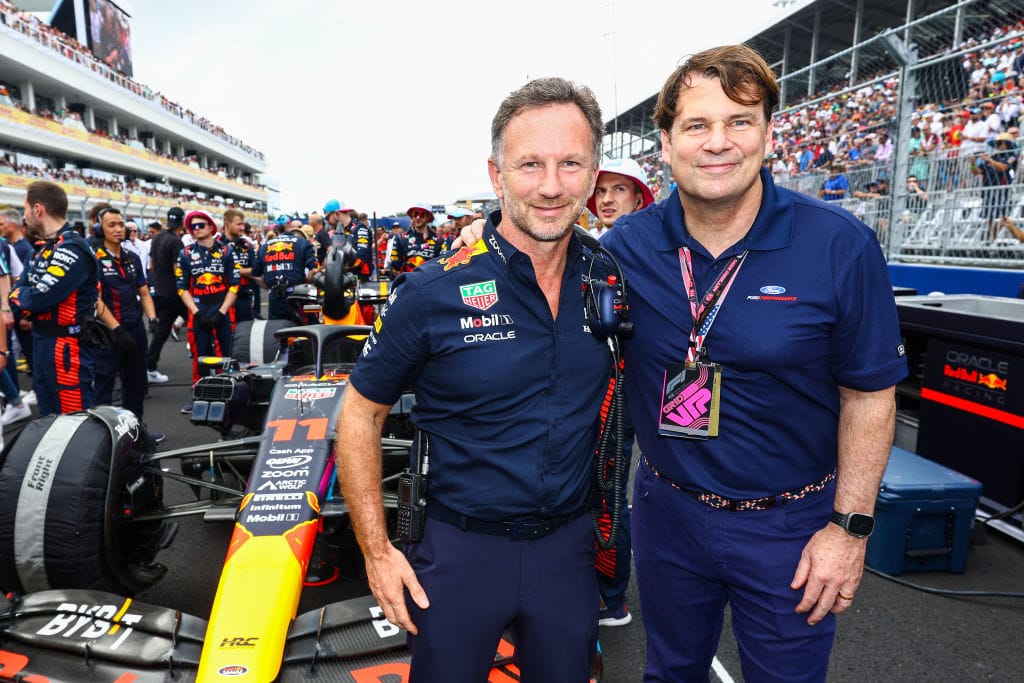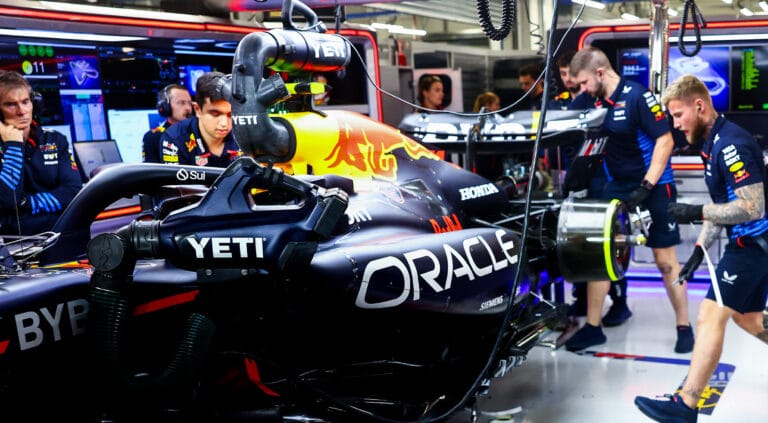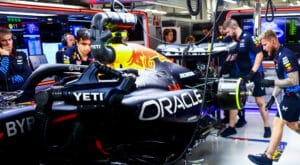Starting in 2026, Red Bull will embark on a new chapter in Formula 1. With the arrival of Ford as an official partner, the team will transition to a full-fledged factory team status. This signifies the end of their collaboration with Honda and ushers in a new phase where Red Bull will have full control over the development of their power unit. But does this significant change promise success, or is there a pitfall lurking? Otmar Szafnauer warns Red Bull of the biggest pitfall.
The First Steps as a Factory Team
Historically, Red Bull has always operated as a private team, with engine suppliers such as Renault and Honda providing the power units. This will change from 2026, when Red Bull Powertrains, in collaboration with Ford, will develop a fully proprietary drivetrain. The internal combustion engine will be produced in their new factory in Milton Keynes, while Ford will be responsible for the electric part of the hybrid engine.
Not only Red Bull, but also sister team Racing Bulls will use this power unit. This means that Red Bull Powertrains can gather valuable data from four cars on the grid, a significant advantage in optimizing engine performance.
Major Rule Change in 2026
The new engine regulations coming into effect in 2026 will bring about a considerable shift in power dynamics. Formula 1 is doubling down on electrification, making the partnership with Ford particularly intriguing. Red Bull has historically had one of the best chassis departments in the sport, and if they can combine this with a competitive engine, the future looks promising.
Szafnauer Warns of Potential Risks
Former Alpine team boss Otmar Szafnauer has confidence in the resources and expertise of Red Bull and Ford, but also raises a caveat. He warns that the biggest pitfall lies in the collaboration between the two parties. There’s a risk that Red Bull and Ford may pull in different directions. “There are techniques that work well at Ford, but not in Formula 1, and this can slow down developments. Both parties need to be on the same page and indicate what works and what doesn’t. If they don’t, they could get themselves into trouble,” says Szafnauer.
Ford Responds to Rumors
There were rumors that the engine project was behind schedule, but the American car manufacturer vehemently denies this. CEO Jim Farley stated that they are fully on track to be competitive by 2026.
However, there is some skepticism. Ford has a turbulent history in Formula 1, with its most recent attempt being the failed collaboration with Jaguar at the beginning of this century. Ironically, that same team was later taken over by Red Bull, bringing the circle full round with the new collaboration between Red Bull and Ford. Whether the collaboration will be a success story or an expensive lesson will only be revealed in 2026.









